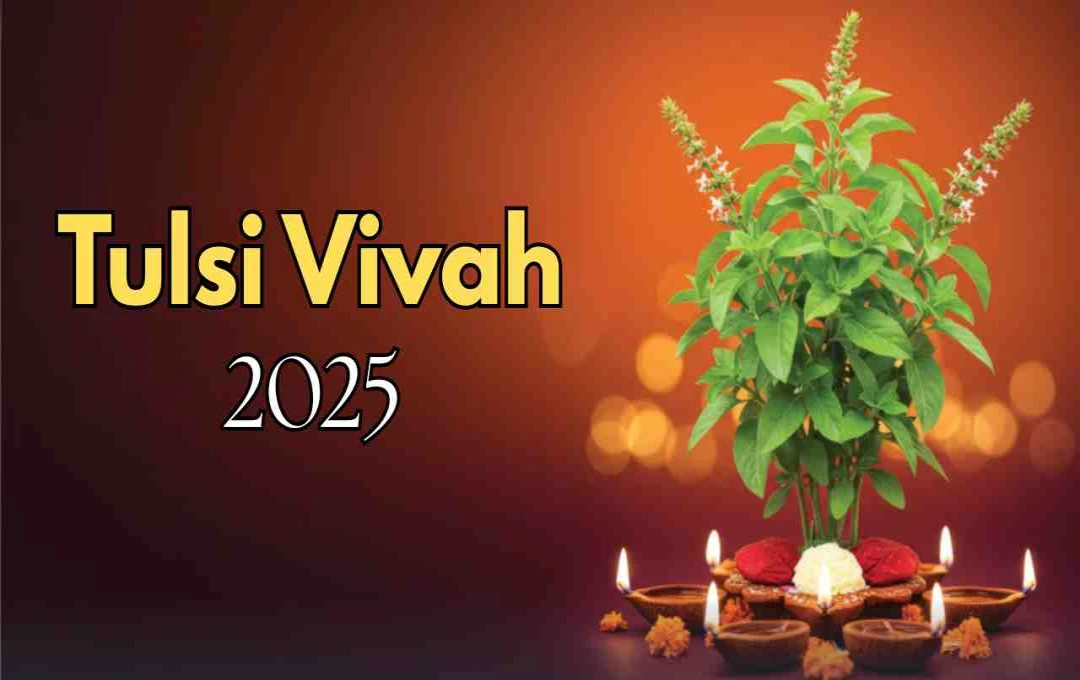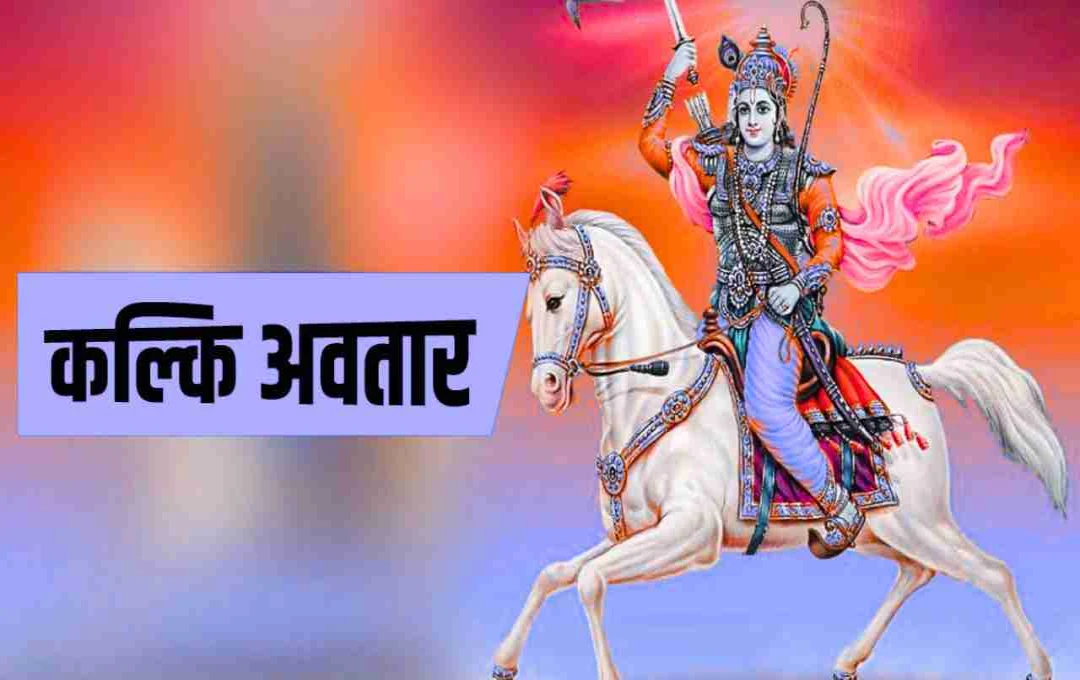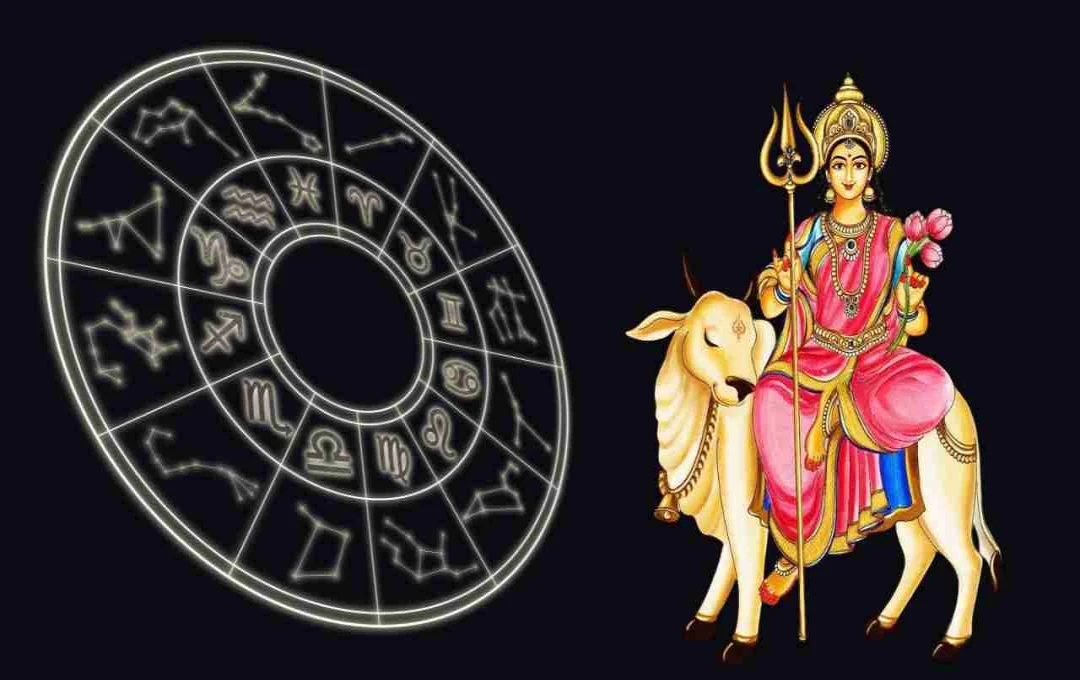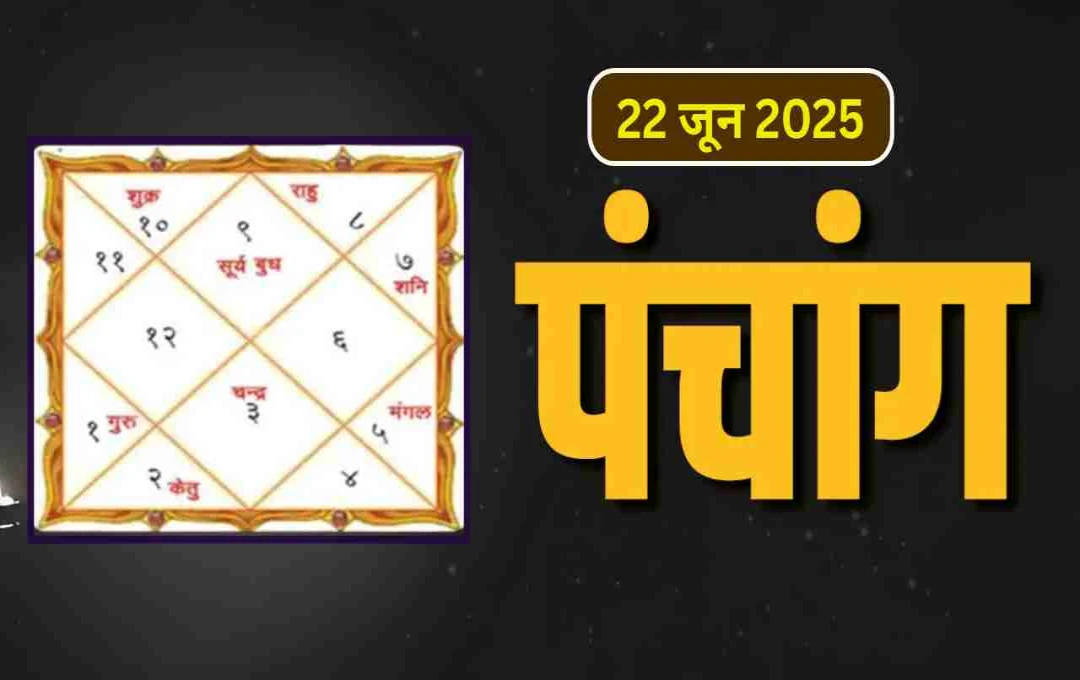The festival of Tulsi Vivah will be celebrated on November 2nd this year. On this day, Lord Vishnu awakens from his yogic sleep, marking the end of Chaturmas. Auspicious activities commence with Tulsi Vivah. However, offering Tulsi in Ganesh Puja is prohibited, as per a mythological tale where Lord Ganesha and Goddess Tulsi cursed each other.
Tulsi Vivah: The festival of Tulsi Vivah will be celebrated with devotion across the country on November 2nd. On this day, Lord Vishnu awakens from his yogic sleep, and auspicious ceremonies begin. Religious belief holds that Tulsi Vivah symbolizes the sacred union of Lord Vishnu and Goddess Tulsi. However, an interesting fact is that Tulsi is not used in Ganesh Puja. Behind this lies a mythological tale where a conversation between Lord Ganesha and Goddess Tulsi led to a curse for both.
Why is Tulsi not offered in Lord Ganesha's worship?
In Hinduism, Tulsi is revered as a mother figure and holds special significance in every religious ritual. However, when it comes to Ganesh Puja, Tulsi is not used. According to religious belief, there is a story behind this where a dialogue took place between Goddess Tulsi and Lord Ganesha, resulting in both cursing each other.
It is said that once upon a time, Goddess Tulsi fell in love with Lord Ganesha. Goddess Tulsi, a great devotee of Lord Vishnu, decided to marry Lord Ganesha. She herself approached Lord Ganesha to express her feelings. At that time, Lord Ganesha was engrossed in penance. He listened to Goddess Tulsi's humility but rejected the marriage proposal. Lord Ganesha stated that he was observing celibacy and would not marry.
The Story of the Curse
Goddess Tulsi was hurt by Lord Ganesha's rejection of her marriage proposal. She felt that Lord Ganesha had insulted her. Filled with rage, Goddess Tulsi cursed Lord Ganesha that he would marry two women. This curse of Goddess Tulsi did not go in vain. According to mythological beliefs, Lord Ganesha married two divine women named Riddhi and Siddhi.
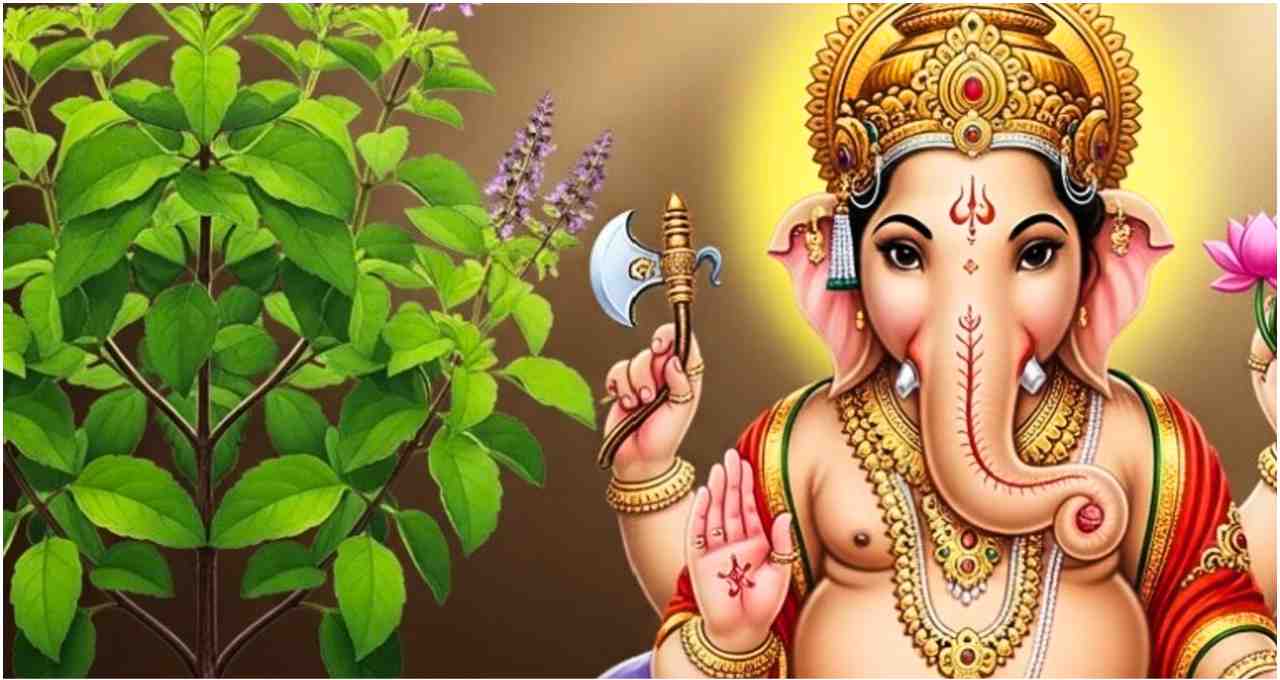
Upon hearing the curse, Lord Ganesha also became enraged. He told Goddess Tulsi that since she had cursed him in anger, she too would have to bear its consequences. Lord Ganesha cursed Goddess Tulsi that she would marry a demon. Due to this curse, Goddess Tulsi married Jalandhar, an Asura (demon) of the demon clan.
When Goddess Tulsi asked for forgiveness
After some time, Goddess Tulsi realized her mistake. She understood that being angry with Lord Ganesha was inappropriate. She sought forgiveness from Lord Ganesha for her curse. Lord Ganesha accepted her prayer and said that in the coming time, she would take the form of a sacred plant, which would be worshipped throughout the world.
Lord Ganesha also stated that this form of Tulsi would be considered auspicious in every puja, but Tulsi would not be used in his (Lord Ganesha's) worship, as it commemorates their mutual incident. For this reason, even today, Tulsi leaves are not offered in Ganesh Puja.
Religious Significance of Tulsi Vivah
Tulsi Vivah is an important festival in Hindu tradition, celebrated on the day of Devuthani Ekadashi or Prabodhini Ekadashi. On this day, Lord Vishnu awakens from his four-month yogic sleep and becomes active in creation once again. Tulsi Vivah is organized with Shaligram, the symbolic form of Lord Vishnu, and Goddess Tulsi.
On this day, the Tulsi plant is adorned like a bride, dressed in a red saree, and a mangalsutra is tied. Pujas, bhajans, kirtans, and the marriage ceremony of Tulsi-Vishnu are organized in homes and temples. It is believed that starting wedding ceremonies and other auspicious events after Tulsi Vivah is propitious.
The Tale of Tulsi and Jalandhar
After Lord Ganesha's curse, Tulsi married the Asura Jalandhar. Jalandhar was an extremely valiant and powerful demon. Due to Tulsi's devotion as a chaste wife, Jalandhar had gained immense power, making it impossible for the gods to defeat him. However, Lord Vishnu ultimately slew him.
When Tulsi learned of this, she became distressed and cursed Lord Vishnu that he would turn into a stone. It is said that due to this curse, Lord Vishnu took the form of Shaligram. Later, Tulsi performed penance and transformed herself into the Tulsi plant, and Lord Vishnu granted her the boon of being worshipped alongside him.
Symbolic Message of Lord Ganesha and Tulsi
This tale of Lord Ganesha and Goddess Tulsi is not just a religious story but conveys a profound message. It highlights the importance of self-control, ego, and forgiveness. While Lord Ganesha upheld celibacy and self-restraint, Goddess Tulsi faced the consequences of her anger and ultimately found peace by seeking forgiveness.
This story also teaches that the path of faith and love always passes through humility, and only when one abandons their ego do they attain true closeness to the divine.
Rules and Traditions Associated with Tulsi Puja
The Tulsi plant is considered a symbol of auspiciousness and purity in the home. Any puja is deemed incomplete without Tulsi. There is a tradition of lighting a lamp and offering water near the Tulsi plant every morning and evening. It is essential to bathe and purify oneself before touching or plucking Tulsi.
However, Tulsi should not be plucked on Sundays and Ekadashi. Furthermore, the use of Tulsi is completely prohibited on Ganesh Chaturthi or during Ganesh Puja.
